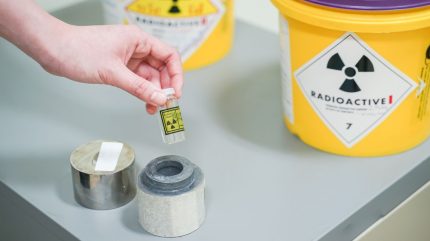
The European Commission (EC) has approved a €2bn ($2.17bn) Dutch measure designed to support the PALLAS project, which focuses on the production of medical radioisotopes used in cancer diagnosis and treatment.
The move aligns with the Pharmaceutical Strategy for Europe, aiming to ensure a secure supply of essential and life-saving medicines.

Discover B2B Marketing That Performs
Combine business intelligence and editorial excellence to reach engaged professionals across 36 leading media platforms.
The Netherlands has informed the EC of its intention to support the PALLAS initiative, entailing the construction of both a reactor and a nuclear health centre in Petten.
The decision follows approval by the commission in 2013 for aid towards the project’s preparatory phase.
The new reactor is set to replace the high flux reactor, a global leader in medical isotope production since 1961, with operations expected to commence in the early 2030s.
The nuclear health centre will transform the reactor-produced medical isotopes into radiochemicals, which will be further processed into radiopharmaceuticals for patient administration.

US Tariffs are shifting - will you react or anticipate?
Don’t let policy changes catch you off guard. Stay proactive with real-time data and expert analysis.
By GlobalDataThese radiopharmaceuticals are crucial for diagnosing and treating diseases, including cancer.
The facilities will also serve as research and development hubs for nuclear medicine and technology, though not for energy production.
The approved aid will be provided as loans and equity, totalling €2bn, to a new entity, NewCo, formed by merging the PALLAS Foundation and the Nuclear Research and Consultancy Group, which currently operates the existing reactor.
NewCo will be responsible for constructing and managing the reactor and nuclear health centre.
EC executive vice-president in charge of competition policy Margrethe Vestager stated: “This €2bn measure enables the Netherlands to support a strategic project contributing to the securing of supply of essential medicines and to the development of breakthrough innovation in the field of nuclear technology to the benefit of European citizens.
“Our assessment has confirmed that the measures proposed by the Dutch authorities will limit any possible distortions of competition triggered by the public support.”




